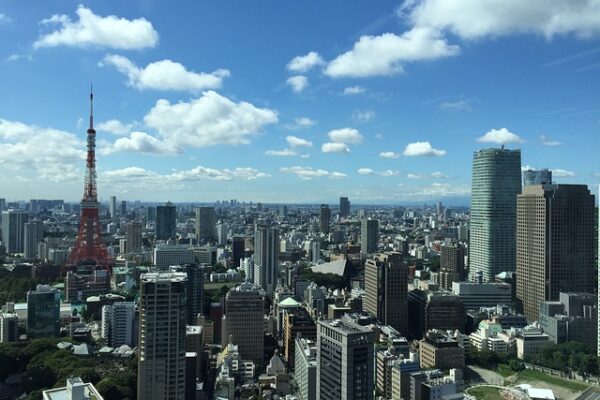Visa Application for Japanese Third Generation (Nikkei Sansei)

2023,06,19
Japanese Third Generation (Nikkei Sansei) refers to immigrants from Japan and their descendants. As of 2017, it was estimated that there were approximately 4 million Nikkei Sansei worldwide, with two-thirds of them residing in Central and South America, playing a significant role in preserving and promoting Japanese culture.
We often receive inquiries from Nikkei Sansei individuals who express a desire to live in Japan, reconnecting with their grandparents’ roots. In this article, we aim to provide an explanation of the visa application process, focusing on the required documents for Nikkei Sansei individuals.
Japanese version of this article: 日系三世のビザ「定住者」の必要書類
Related article: Visa application for Fourth-generation Japanese ( Nikkei Yonsei)
Visa Types
As the third generation of overseas immigrants, Nikkei Sansei individuals are eligible for a “Long-term Resident” visa. This visa does not impose any work restrictions, allowing them to work in various fields, including positions classified as simple labor, such as convenience stores or factories.
Required Documents for COE Application (for those coming to Japan from overseas)

- Application form
- Photograph (4×3 cm) taken within 6 months
Documents obtained from Japanese municipal offices
- Certified copy of grandparents’ (Japanese) family register (koseki-tohon) or record of removal from family register (Joseki-tohon)
- Certificate of acceptance of marriage notification (for grandparents and parents)
- Certificate of acceptance of birth notification (for the applicant)
- Certificate of acceptance of notification of death (for grandparents and parents)
(Note: The above documents 2-4 are required only if they have been submitted to a Japanese municipal office) - Residence certiricate (Jyumin-hyou) of housemate in Japan (including all members of the household) if the applicant will be residing with them
Documents for proving occupation and income
If the applicant can provide these documents themselves:
- Bank statement as proof of savings balance (under the applicant’s name)
- Certificate of employment or notice of employment acceptance (issued by a Japanese company)
If someone other than the applicant will cover the stay expenses:
- Certificate of residence tax payment (taxable or non-taxable) for the last year of the person supporting the stay expenses, along with a tax payment certificate
Additional Documents:
- Letter of guarantee (from a Japanese citizen or Long-term resident residing in Japan)
- Certificate of criminal record (issued by the relevant authority in the applicant’s home country)
- Marriage certificate issued by the home country’s authority for grandparents and parents
- Birth certificate(s) issued by the home country’s authority for parents and the applicant
- Certificate(s) related to acknowledgment of paternity issued by the home country’s authority (if applicable)
Note: The acknowledgment of paternity certificate is required only if applicable - Official documents proving the existence of grandparents and parents (e.g., passports, death certificates, driver’s licenses)
- Official documents proving the applicant’s identity (e.g., identification card, driver’s license, military service certificate, voter registration card)
Required Documents for Applying for a Residence Period of “5 Years”
In order to apply for a residence period of “5 years,” the following certificate is required to prove a certain level of Japanese language proficiency (excluding minors):
- Document certifying that the applicant has received at least 6 months of Japanese language education at a Japanese language education institution designated by the Minister of Justice
- Document certifying that the applicant has passed the Japanese Language Proficiency Test (JLPT) N2 level
- Document certifying that the applicant has achieved a score of 400 or higher on the Business Japanese Proficiency Test (BJT) administered by the Japan Kanji Aptitude Testing Foundation
- Document certifying that the applicant has received education for at least 1 year at a school defined by Article 1 of the School Education Law (excluding kindergartens)
Note
All certificates issued in Japan must be submitted within three months from the date of issuance.
Summary
The visa for Japanese Third Generation (Nikkei Sansei) individuals falls under the category of “Designated Long-term Resident” as designated by the Minister of Justice. Therefore, having good conduct is a crucial requirement for obtaining the visa.
At Amie Immigration Law Office, we provide support for visa applications for Nikkei Sansei individuals. If you are considering applying, please do not hesitate to contact us.
Profile
Ami Ito
– Spent high school years in the U.K. and graduated from a local school.
– Studied mainly intercultural communication at Sophia University’s Faculty of Foreign Languages, English Department.
– Worked in the overseas department of SEIKO for 11 years after graduation.
– Over 10 years of experience teaching English to high school students, with a TOEIC score of 970 and a Class A level in the United Nations Associations Test of English.
– Serves as a director in charge of international affairs at the Chiba Administrative Scrivener Association.
– Officially registered on the Financial Services Agency’s “List of Professionals (Administrative Scriveners) in Chiba Prefecture capable of providing services in foreign languages.”
News and Blog








